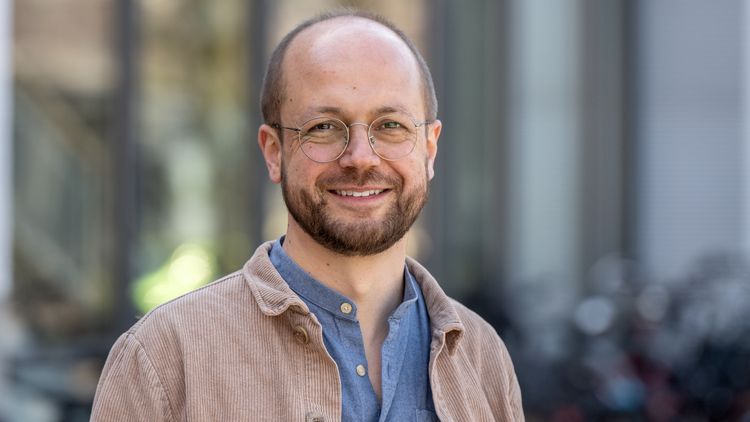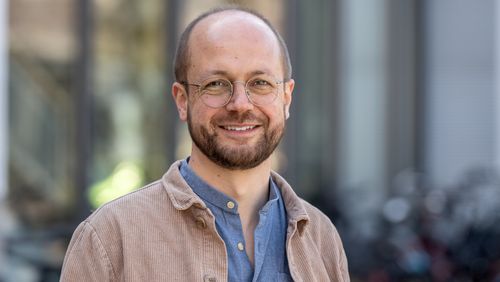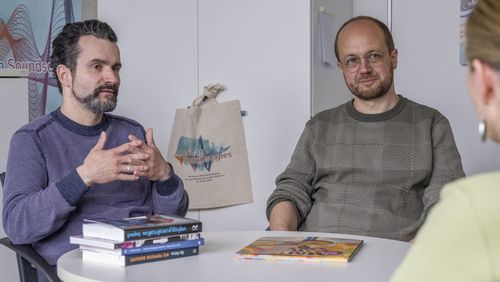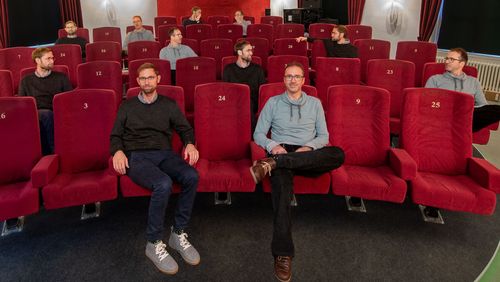Pop music can normalise populism, says musicologist Mario Dunkel. In the following interview he explains how this happens and what it means – for music lessons in schools and for the upcoming European elections.
You spent several years researching populist tendencies in pop music. In your project you begin from the hypothesis that music with populist or nationalist messages has recently become more popular in Europe. How widespread is populist content in music, and has it actually become mainstream in recent years?
We first looked at the concept of “populism” and found that in all the countries we included in our analysis – Hungary, Italy, Austria, Germany and Sweden – populism mostly takes the form of right-wing populism, combined with nationalism. Our focus was therefore on this type of populism rather than left-wing populism. We follow the definition according to which populism is not an ideology in the narrower sense, but a form of discourse: a populist discourse divides society into “normal people” and a supposedly detached, corrupt “elite”. This discourse places these two groups in an oppositional relationship to each other. In addition, crisis narratives and a nostalgic “everything was better in the old days” attitude play an important role in right-wing populism in particular.
And how is this discourse conducted through music?
We approach the field in two ways: first of all, we look at how populist parties use music. It’s clear that musical works that are appropriated by parties needn’t necessarily come from a musician with close ties to that party. As an example, Reinhard Mey's song “Sei wachsam!” (Be alert!) was played at AfD demonstrations. The lyrics are populist, directed against politicians who are “old pretending to be young”, who only see the people as “subjects” and are always “busy rattling their sabres”. But the song is neither right wing nor right-wing extremist. It was written in the 1990s in the context of the Bundeswehr’s operations in the Balkans.
And secondly?
Secondly, we analyse pieces of music and remarks made by musicians and their fans. With pop music in particular, we found that populist content has been very present in recent years. In many countries, there are singers or bands that work with populist and nationalist references. Music with populist and nationalist content has not become dominant, but it has penetrated the mainstream in a wide variety of genres. A well-known example is the Austrian pop singer Andreas Gabalier, who casts himself as a rebel in his song “A Meinung haben” (“Having an Opinion”), courageously standing up against the apparent suppression of freedom of expression. Gabalier performed this song in front of 60,000 people in Munich’s Olympic Stadium. Another example is the band Dorfrocker from Franconia. They often make fun of people who are active in the climate movement or eat a vegan diet, and they also populistically showed solidarity with the farmers’ protests at the beginning of the year.
At what point does music become political?
Strictly speaking, music always has a political dimension. This even applies to seemingly apolitical music like love songs. The question of who sings about whom, whether it’s a man who’s crazy about a woman or vice versa, whether it’s a same-sex constellation, is already a political question. And that’s because social relationships always play a role here, too. What expectations does the singer’s persona have of the other person? What character traits do they sing about? All these aspects have a political and social dimension because they provide information about gender images or the acceptance of certain couple constellations. And if love songs are political, all other music is political all the more.
In your project you analysed pop music and populism in various European countries. Are there certain patterns or themes that are common to several countries?
The crisis discourse, nostalgia and the alleged conflict between the “people” and the “elite” can be found in popular music in all the contexts we analysed. I’ve already talked about examples from Germany and Austria. An example from Hungary is the band Ismerős Arcok. In its song “Nélküled”, the lyrical subject is searching for his homeland and perceives his separation from Hungary as death. For him, the prospect of reunification with Hungary is the only path to happiness. This nationalistic song, which alludes to the Greater Hungary of the time before the First World War, is now played before the football matches of the Hungarian national team and has hundreds of thousands of fans.
What role should pop music with populist content play in the education of music teachers and in music lessons?
Music lessons are exactly the right place to deal with the political content of music and its emotional impact. “How does this music make me feel?”, “What emotions does it evoke?” – teachers should definitely address these questions, which have a tangible connection to pupils’ everyday lives. Where, if not in music lessons, can young people talk about this topic? This also offers the opportunity to scrutinise and better understand the musical strategies and structures of such music. It’s not about telling pupils that they shouldn’t or aren’t allowed to listen to certain music. On the contrary: they should enjoy listening to all kinds of music, but they should reflect on it themselves, and examine it critically together with other people.
In your book about the project you write that pop music has helped populist ideas to become mainstream. Does this mean that popular music is partly to blame for the spread of populism?
Obviously, you can’t blame pop music for this. However, like other forms of music, it’s a field on which society can play out its conflicts. In recent times it has contributed to the normalisation of populism. On the other hand, there’s also pop music that opposes right-wing populism, nationalism and authoritarianism, for example by parodying Andreas Gabalier or the German rapper Kollegah. Other examples are singer Jennifer Rostock, and the rock band Die Ärzte, which in its song “Demokratie” speaks out clearly for democracy and urges people to vote.
What does all this mean for the upcoming European elections?
Right-wing populist parties are likely to make significant gains across the EU. I hope that the results of our research will contribute to a better understanding of the interplay between populism and nationalism – especially at the cultural level. And I hope they make clear that music deals with socially important issues in a unique way. The answer to the question of what we consider “normal” culturally and politically becomes evident and tangible through music. At the same time, there is not a singer in the EU who can influence the European elections as decisively as it seems might be the case with the presidential election in the US, for example. The EU is too diverse and too varied linguistically for that. A figure like Taylor Swift, for example, who is said to have considerable potential to influence the US elections, simply doesn’t exist in Europe. Beyond that, if you ask me what people should do, I would agree with Die Ärzte: Go out and vote!
Interview: Henning Kulbarsch




